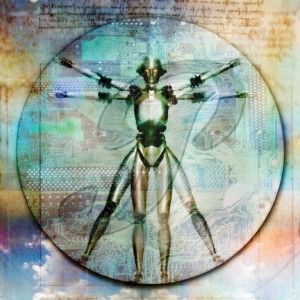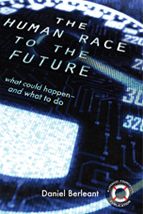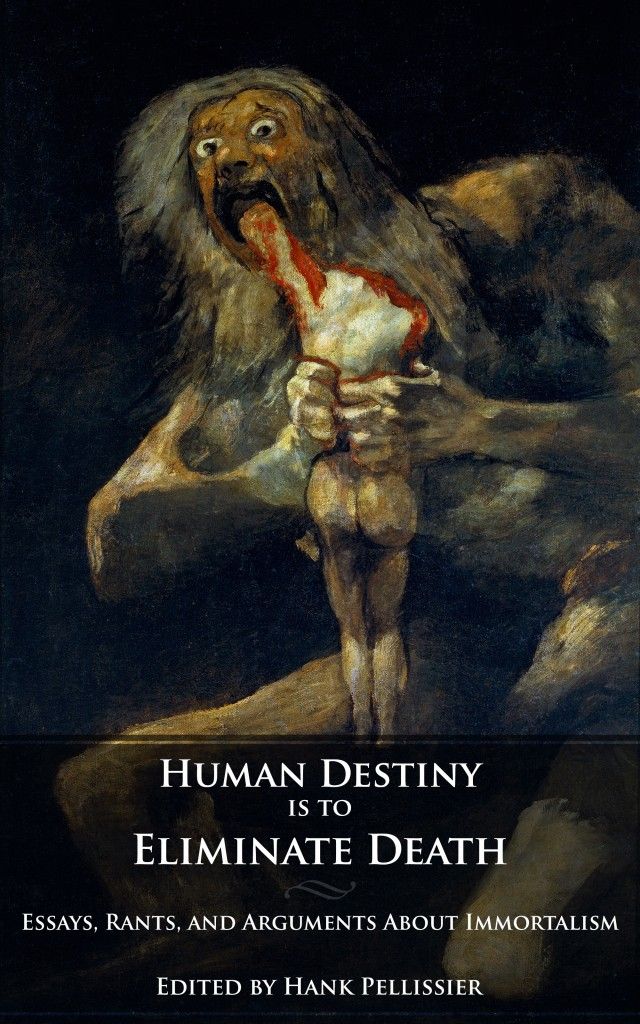Jul 31, 2013
There Is No Need For An End
Posted by Odette Bohr Dienel in categories: education, lifeboat
The imposition of compositional structure within the craft of writing was recently pointed out to me. As students we are told repeatedly to open, elaborate and conclude a writing work. This carries on into so-called professional life. Indeed the questions that arise during the course of any given writing work are outside the scope of the work itself, the material of the work deals with facts and recommendations, which are based on our conclusions. To end a piece of professional or student work without conclusions and with questions would be seen as a lack of seriousness. We believe time invested into investigation is only worthy if we emerge with answers. And the answers we are to have begin with our original questions and are influenced by the way we approach the questions. And yet we approach the questions knowing they will need to be answered and so our opening approach is very limited. We not only formulate opening questions we feel we will have a good chance of answering, but our entire attention during the duration of looking at the question is focused on finding an answer. So where is the originality then in our thought? And where is the opportunity to explore the limitations of thought itself as it is applied to the complexity and urgency of matters in the world? If my opening point of inquiry is designed to be something I know I can find an answer for, then certainly I have no opportunity to go beyond what I know to address it, not really, and so there is nothing new. And if I begin a problem knowing I will be judged on finding an answer for that problem then I will necessarily limit or eliminate any point of fact or inquiry that takes me from that task. The generally accepted process and presentation of writing today is linear and monolithic in an academic and professional context. We talk about complexity and interrelatedness but we judge, evaluate and reward a written approach to that complexity and interrelatedness according to how well it fits into what we already know and according to the standards we have already found to be acceptable. Because we are bound to our knowledge and our processes of merit through training, repetition, various forms of aggrandizement and institutional awareness, however subtle or overt, we disregard or penalize information and modalities that fall outside our realm of knowing. Therein, the places we go to fulfill our knowing may expand (geographically or otherwise) but the way we approach and arrive at knowing remains the same. Although some may develop original technical innovations, those technical innovations will be used as tools to serve the knowledge system that is already established within any given realm of inquiry.
Our assumptions and biases about knowledge creation are interwoven with our experiences, our interpretations of those experiences, and our identification with the experiences and interpretations. Patterns emerge and we craft a self through the mosaic and soon that mosaic can stand in for our self. When that mosaic of experience and interpretation is cultivated through authority and the authority of our own experience and sense of self, we will extend our sense of authority into the realm of that which we already know. In this we are setting up a subtle preoccupation with what we know and with the familiar way we arrive at knowledge while simultaneously we derive a prejudice against what we do not know and also any unknown means to cultivate the known.
For example, pretend I am a teacher with a PhD, many people have applauded my research and I publish books, give famous lectures and have tenure at a prestigious school. I feel confident in my work and consider myself to be an authority in my field. A student comes along who does not know me and takes my class for the first time. She questions my logic and says my class is a bore. She tells me my exams do not test her knowledge of the subject but instead test her ability to repeat my version of the subject. She writes a paper calling into doubt the major premises of my field, to which I have contributed the most popularly followed lines of inquiry and she proposes an entirely new approach to the field and ends her paper with grand questions about the nature of intellectual thought. How do I approach this? In a typical situation I would question the student’s credibility as a student. I would consider her farfetched and someone who is incapable of understanding the subject matter. I would have trouble finding a way to give her a passing course score. She would be a problem to fix or to solve or to ignore. Never would I consider that perhaps she had a point. Why? I assumed the ascendency of my own knowledge based on my own sense of authority. Because the student operated outside my realm of knowledge and outside my sense of appropriateness in the acquisition of knowledge, I decided she was wrong. Invisible to me are my own assumptions of authority, including my assumption that authority has validity. Even though I have a wide set of experiences related to a branch of knowledge I am unable to see that those experiences are necessarily limited because I have only had a certain set of them, no matter how vaunted, and that knowledge itself is limited because it is always about what is already known. So I approach my student as if she is a problem instead of approaching her as a person with insight that may also be valid and should be explored. If we use something that is already known to approach what is new, how can we really approach it? The new will consistently be framed according to its relationship or lack of relationship with what has been established. And as has already been stated, what has been established is where authority has been placed, including our reverence for all the things we have already authorized.
Many of us operate in this field of inquiry, discovery and selfhood and it is apparent when we review our written forays into the realms of global problem solving discourse. So often we conclude. So often we have answers and set approaches to solving problems. So often we solicit recommendations for action. But rarely do we ponder over, except that which we have relegated to philosophy. In the realms of activity (politics, business, economics, education, health, environment, etc.) we theorize action, take action or meet to form a new activity. We say events and circumstances are too urgent to stop for too much thought, but in our haste, our actions themselves lead to further reasons to have to meet again to reorient ourselves. Our writing becomes a part of this process. We write in order to validate our next action and we guide that writing according to what we think that action should be. We rarely write to discover the appropriate terms upon which our action should be based. We rarely question the terms upon which our previous action has been based. We rarely inquire into our standards, we just try to find novel ways to meet them.














